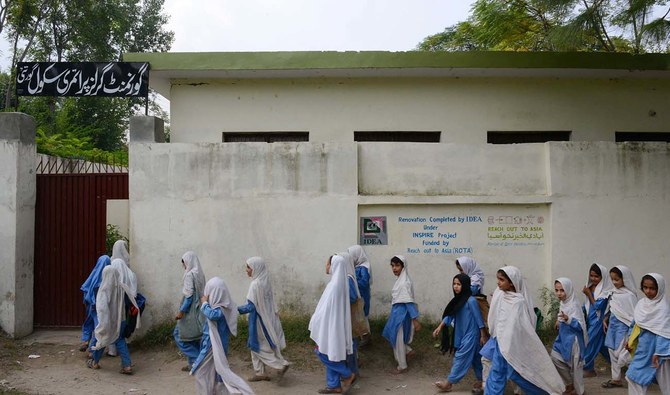ISLAMABAD: Pakistani Prime Minister Shehbaz Sharif on Friday ordered that a girls school bombed by militants this week in a former stronghold of the Pakistani Taliban should be immediately rebuild, vowing to provide women with equal opportunities for education.
There was no immediate claim of responsibility for the attack late Wednesday that targeted the only girls school in Shawa, a town in the North Waziristan district in the Khyber Pakhtunkhwa province bordering Afghanistan.
Suspicion is likely to fall on the Pakistani Taliban, or Tehreek-e-Taliban Pakistan (TTP), who have targeted girls schools in the province in the past, saying that women should not be educated.
The TTP group was evicted from northwest Pakistan’s Swat and other regions in recent years after successive military operations. The TTP are a separate group but a close ally of the Afghan Taliban, who seized power in Afghanistan in 2021. The Taliban takeover in neighboring Afghanistan has emboldened the Pakistani Taliban, the Pakistan government says.
“Prime Minister directed to immediately identify the people involved in the incident and ensure that they are punished,” a statement from Sharif’s office said, adding that the PM had instructed that the part of the school destroyed in the attack be “immediately” rebuilt at government expense.
“The nefarious ambitions of terrorists to stop the education of girls will never be allowed to succeed,” the statement quoted Sharif as saying. “Terrorist elements who are trying to create obstacles in the education of the daughters of the nation will be brought to justice.”
Pakistan witnessed multiple attacks on girls schools until 2019, especially in the Swat Valley and elsewhere in the northwest where the Pakistani Taliban long controlled the former tribal regions. In 2012, the insurgents attacked Malala Yousafzai, a teenage student and advocate for the education of girls who went on to win the Nobel Peace Prize.
In the latest incident, police said the attackers first beat up the school guard before setting off the explosives at the private Aafia Islamic Girls Model School, which has 150 students.
In a statement, Abdullah Fadil, the UNICEF representative in Pakistan, said the “destruction of a girls’ school in a remote and underserved area is a heinous crime detrimental to national progress.” He cited Sharif’s statement on Wednesday declaring an education emergency and pledging to work toward enrolling 26 million out-of-school children.
With inputs from AP












